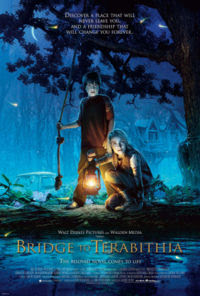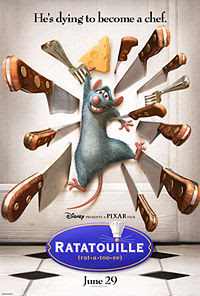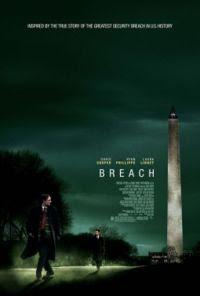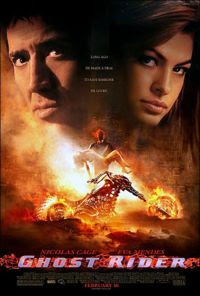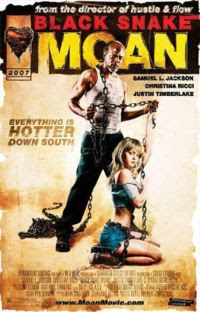 Written & Directed by: Craig Brewer
Written & Directed by: Craig BrewerStarring: Samuel L. Jackson, Christina Ricci, Justin Timberlake
Color, 116 minutes
Rated R
Grade: C-
If a grown up, skanked out, half-naked Wednesday Addams chained to a radiator is your idea of a good time (you know who you are), then you're going to love Black Snake Moan. For the rest of us who aren't thirteen, Moan is a disappointment. The storytelling is hackneyed, and there is an unpleasant, arrogant air of provocation hanging over the entire film. Writer/Director Craig Brewer may have proved how hard it truly is out there for a pimp in Hustle & Flow, but here he proves that turning what may be an enjoyably brief, juvenile wet dream into a two-hour film may be even harder.
Christina Ricci plays Rae, a trailer park nymphomaniac, and as the film opens, Rae has her hands full. Her boyfriend Ronnie, played by Justin (don't quit your day job) Timberlake, is passionately jumping her bones. The act is bittersweet, however, because once it's finished, Ronnie makes a beeline for the bathroom and continues to puke his guts out (I'm sure that's what every girl wishes for after being drilled by Timberlake). Ah, but Ronnie has a reason for the stomach knots, he's being shipped off to Iraq. They shed some tears, blow some kisses, and then Ronnie heads on down the lane. Three minutes later, Rae falls to the grown, clutching her legs, tugging at her shirt. She's gotta have it, and have it she does with just about everything that can walk, wiggle, or squirm. She takes on the local pot dealer, most of the football team, and she even tries her hand at Ronnie's best friend. He sees the chance he's been waiting for, but she makes fun of his "manliness" and the bastard punches her repeatedly in the face. Trying desperately to wake her up, he senses something maybe wrong, and, not knowing what to do, he kicks her out of his pickup. She's left lying on the road, unconscious, clothed in nothing but a cutoff t-shirt and panties.
The next day she's found by Samuel L. Jackson's Lazarus (pinning the film as a Christian allegory would be giving Brewer too much credit), a farmer/washed up blues musician who's been scorned by the wife who left him for his younger brother. Lazarus takes Rae back to his house, bathes her, prays over her, and does his best to "get her well." Rae is in and out of consciousness, breaking out into fits, writhing around on the floor, and Lazarus, in all his infinite wisdom, decides to chain her up to cure her "sickness." That's one way to get Lindsay Lohan to stay in rehab, I guess. The days go on, and with the help of a Bible thumper or two, Rae gets better. Lazarus is able to take on the manifestation of a fatherly figure to Rae, and the two establish a sort of familial bond. Lazarus, feeling better than he has in years, is inspired to pick up the old Gibson and put his wife behind him. He finds himself drawn to Angela, the local pharmacist, played brilliantly by S. Epatha Merkerson. Love is in the air, but everything threatens to come crashing down once Ronnie, discharged because of anxiety, gets wind of what's going on.
First of all, let me just say that I believe Brewer is a real find. I wasn't crazy about Hustle & Flow, but I enjoyed it and recognized the fresh, young talent behind the wheel. The music in Flow was essential to the film's success, and was subservient to the story. Here, the music is nothing but an afterthought ("Wouldn't it be cool if we made Lazarus a blues guitarist?"). There's no reason for it. Brewer tries to have it both ways, and he fumbles the ball. He's like one of those guys who juggles chainsaws. Like tossing around bowling pins wouldn't be enough, you gotta try and top that, and essentially risk cutting a limb off in the process. The interplay between Rae and Lazarus is interesting enough on it's own without the music, and he really could have created something substantial there. We don't need the slow motion scenes of sweaty people dancing and flailing their hair around. Yes, it's cool that Jackson sings and does his own guitar work, but it lessens the potential dramatic thrust that could have made this film something unique.
Worse than that, Brewer trips up on his own stylistic indulgences. We automatically know we're in trouble when the title credits come down over a slow motion image of Ricci, walking in the middle of the road, flipping off a tractor that is trying to get her to move out of the way. That's real classy. We get the heavy-handed symbolism, the usual Southern stereotypes, and the unfortunate Cameron Crowe-like focus on soundtrack over more important, but not nearly as cool, stuff like character development, patient storytelling, and dialogue. But, I guess if I had to pick one thing about Moan that really sticks in my craw, besides Rae's Laura Palmer-esque tendencies, Brewer's wannabe Lynchian flashbacks, and the potentially offensive idea of a woman being chained to a radiator because she's obsessed with sex, it would have to be the fact that, above all, Brewer is a hopeless romantic. As a storyteller, it's his biggest flaw. The proceedings are rendered predictable, and the happy ending practically ensures that the film will leave us with nothing but a forgettable two hour excursion. And it's a shame.
While I could go on with my rant (why does Rae's behavior have to be justified with the same old cliches), I won't, only because there are a few positives that must be brought to attention. First off, this is the best work that Jackson has done since Changing Lanes. He takes Brewer's flat idea of a stubborn ("I ain't gonna be moved"), broken individual, and makes it flesh. Against our better judgment, Jackson makes us understand Lazarus, and the method in his madness. It's a touching performance that deserves recognition, and Ricci is every bit his equal. Her sickly appearance leaves an impression, but we're won over by the truth and vulnerability in her performance. It's a risky role, in any given scene she is either topless or shot from the waist down, but she pulls it off marvelously. I would like to think that people would stand up and applaud her work here, but Ricci has never gotten her fair shake. For years, she has been bold and selective in her choices, and one quick look at her career shapes up and stands right with Johnny Depp B.B. (Before Bruckheimer). There aren't many actors that are as talented and fearless as she is, and to be quite honest, I doubt there ever will be. This film, and most of her others, are worth watching just to witness her at work. We should be thankful.
With the exception of the wonderful, Oscar worthy Merkerson, the bulk of the supporting cast, led by the cardboard cutout Timberlake, does nothing to help matters. Most of them are acutely aware that the camera is turned on, and they do their best to make sure the audience knows they're taking things seriously ("Look Ma, I'm in a movie."). It's increasingly painful to watch people who have no clue as to what they're doing. Cinematographer Amelia Vincent does her best to make up for the amateurishness by creating a wholly believable atmosphere. Tennessee's back roads, farms, and run down road houses come alive under the guidance of her wonderful eye. You almost choke on the stench of stale cigarette smoke, rank body odor, and spilt beer. She's Brewer's best weapon, and he should consider himself lucky. God only knows how bad things could have been without her on board.
Overall, though, we need to give Brewer credit for trying something different. This is far more ambitious than his previous film, and I hope he continues to branch out. He needs to learn when to pull it in, harness the power that's already at work, and let things grow organically. He has a unique voice, and the potential to stand apart from the run of the mill junk that fills the multiplex every week. Not every film is a success, but they should all be learning experiences. Take it in stride Brewer, pick up the pieces and start again. American cinema needs more risk takers; don't blow your chance to establish yourself near the front of the pack.
